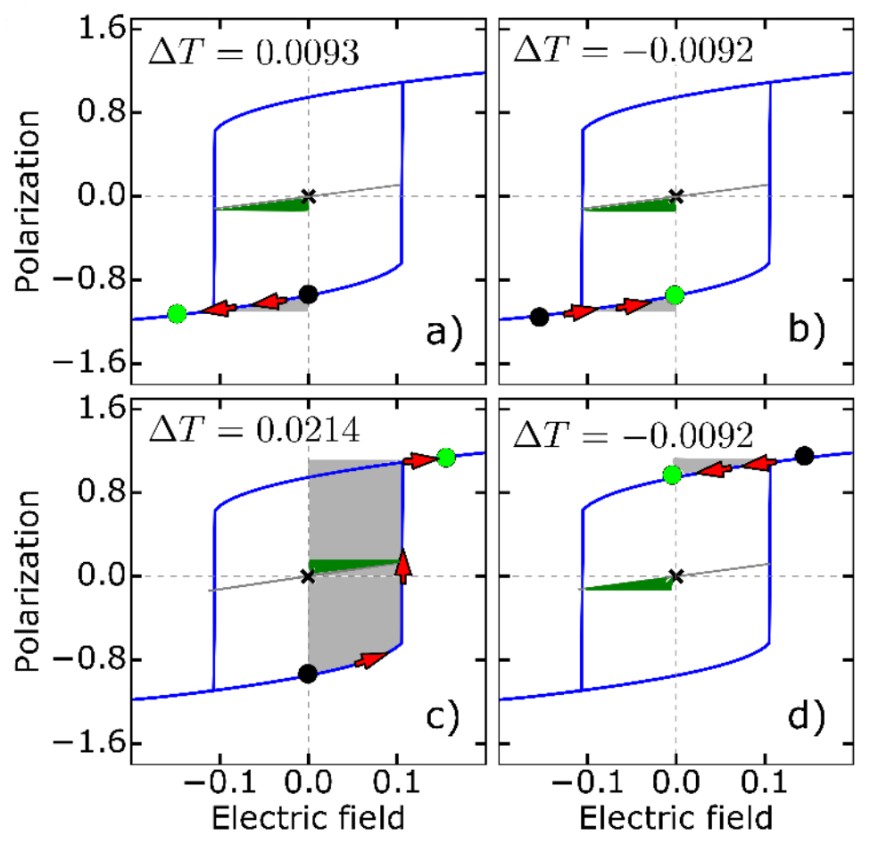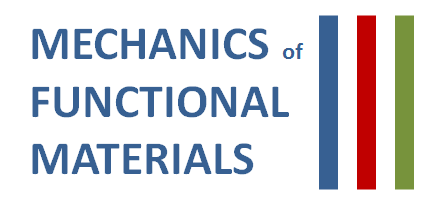Impact of polarization dynamics and charged defects on electrocaloric response of ferroelectric Pb(Zr,Ti)O3 ceramics
New Publication in “Energy Technology”
2018/05/18

Authors: Florian Weyland, Andraž Bradeško, Yang-Bin Ma, Jurij Koruza, Bai-Xiang Xu, Karsten Albe, Tadej Rojac, Nikola Novak
The impact of charged point defects on the electrocaloric response of morphotropic Pb(Zr,Ti)O3 (PZT) ceramics is investigated by direct electrocaloric and polarization hysteresis measurements. The electrocaloric response determined for undoped, hard-, and soft-doped PZT is rationalized by considering the dipolar entropy change over polarization change and hysteresis losses. Surprisingly, the highest electrocaloric effect is observed in poled hard PZT with the field applied along the poling direction, which is related to the reduced hysteresis losses caused by internal electric fields associated with defect complexes. The weak hysteretic dependency of polarization as function of the electric field in hard PZT also allows inducing an inverse electrocaloric effect. The experimental results are compared with model calculations, which provide a physical interpretation. The results reveal how the electrocaloric response of ferroelectrics can be optimized by defect engineering.



